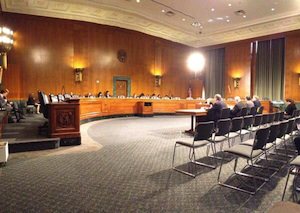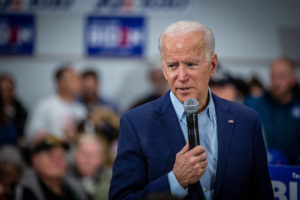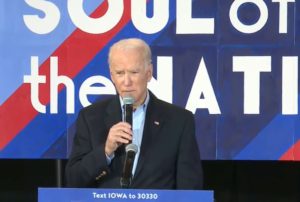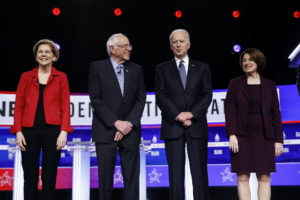Congress Couldn’t Care Less About Unemployment
Only four lawmakers were in attendance at a congressional hearing about the important issue Wednesday.
Long-term unemployment continues to be a major problem for millions of Americans. But that doesn’t seem to bother Congress, as evidenced by the fact that only four of the 19 members of the Joint Economic Committee could be bothered to show up to a hearing about the important issue Wednesday. And of those four lawmakers, just one–Sen. Amy Klobuchar, D-Minn., the committee’s vice chair–was there for the entire 90-minute session.
Sen. Christopher Murphy, D-Conn., was the first one to join Klobuchar, arriving eight minutes after the hearing began. Reps. John Delaney, D-Md., and Elijah Cummings, D-Md., eventually trickled in to bring the total count to four.
The Joint Economic Committee is one of the few congressional panels that feature members of the Senate and the House. From the Senate side, Robert Casey, D-Pa., Dan Coats, R-Ind., Martin Heinrich, D-N.M., Mike Lee, R-Utah, Bernie Sanders, I-Vt., Pat Toomey, R-Pa., Mark Warner, D-Va., and Roger Wicker, R-Miss., were no shows. And from the House, Justin Amash, R-Mich., Kevin Brady, R-Texas, John Campbell, R-Calif., Richard Hanna, R-N.Y., Carolyn Maloney, D-N.Y., Erik Paulsen, R-Minn., and Loretta Sanchez, D-Calif., did not attend.
National Journal:
For a group that often bickers over how to solve the nation’s biggest economic problems, Wednesday’s hearing represented a perfect chance to do just that: be seen discussing how to tackle the intractable problem of long-term unemployment.
The long-term unemployed have it incredibly rough: their ranks have swelled in recent years, accounting for a larger share of the unemployed; the problem is compounded by eroding skills; and the psychological effects of unemployment can take a toll on them and their families. In a 2010 Pew survey, close to half of the people out of work six or months said being unemployed for so long had strained family relations, and more than 40 percent said they’d lost contact with close friends. Just being unemployed for a long period makes individuals less employable. It’s what Kevin Hassett, a former economic advisor to Republican presidential contender Mitt Romney, called a “national emergency” at Wednesday’s hearing.
The purpose of the meeting was to explore bipartisan solutions to tackling the problem, including: equipping the unemployed with new skills; encouraging the private sector to hire more of the long-term unemployed by providing incentives, such as tax breaks or subsidies; improving the economy; and improving education. It’s a daunting task, experts say, but not an impossible one.
— Posted by Tracy Bloom.
Your support matters…Independent journalism is under threat and overshadowed by heavily funded mainstream media.
You can help level the playing field. Become a member.
Your tax-deductible contribution keeps us digging beneath the headlines to give you thought-provoking, investigative reporting and analysis that unearths what's really happening- without compromise.
Give today to support our courageous, independent journalists.






You need to be a supporter to comment.
There are currently no responses to this article.
Be the first to respond.